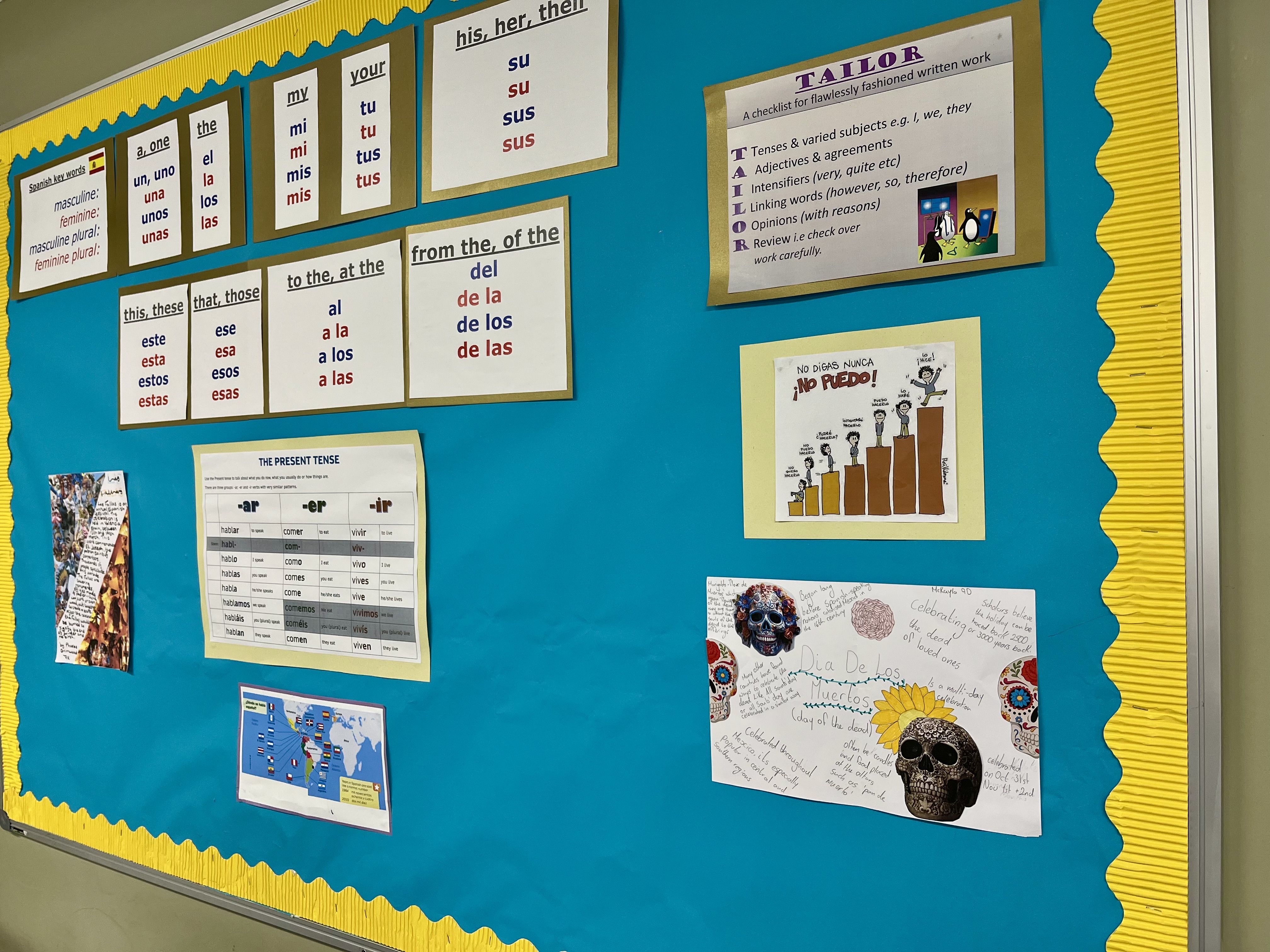Curriculum
- Art
- Computer Science
- Drama
- English
- Food Technology
- Geography
- History
- Maths
- Modern Foreign Languages
- Music
- PSHE
- Physical Education
- Psychology
- Religious Studies
- Science
- Technology
- Exams
- Exam Results
- GCSE Subjects
- Extra-Curricular Clubs and Enrichment Activities
- Careers
- Attitude to Learning Descriptors
- Special Educational Needs
- Go 4 Schools Parent/Carer User Guide
Bonjour! Hola!
Welcome to our Modern Foreign Languages department.
At Stour Valley, we believe in encouraging our students to speak foreign languages independently in order to prepare them for further education and life in an increasingly global world. We also seek to promote cultural and linguistic curiosity about life around the world. In order to explore the cultures of some of the many countries where these languages are spoken, we use songs, extracts from films and literature as well as other authentic resources. We also seek to develop our students’ memory, retention and recall as well as their collaborative and oracy skills in language lessons.
Key Stage 3
We begin Key Stage 3 by studying the phonics (i.e., the sound-spelling relationships) of Spanish and we also teach strategies for reading foreign language texts such as recognising cognates and using clues from the context to infer meaning. We revisit these important aspects of language-learning throughout the key stage. We encourage our students to identify patterns and links between English and Spanish, since it is derived from Latin. We study many aspects of the grammar of the languages, and an interesting range of topics, creating a broad foundation to build on at KS4.
Key Stage 4
At GCSE, students learn how to develop their language skills and to speak with increasing confidence and spontaneity. We provide a firm grammar foundation that enables students to use the language with accuracy and we expect them to use it with increasing complexity and detail.
The GCSE course is based on five themes that build on topics studied at Key Stage 3 and anticipate some of the topics students may encounter at A level: Identity and culture, Local area, holiday and travel, School, Future aspirations, study and work and International and global dimension. These themes allow students to explore topics areas such as family relationships, cultural events and ethical shopping.
In class, activities include working with a partner or in a small group on speaking tasks, listening to a range of Spanish recordings including songs, for both gist and detail; translating short passages from Spanish to English and vice versa; reading a range of different types of texts including extracts from literature; discovering more about Spanish-speaking people, how they live and about their interests and concerns in order to develop a broader cultural awareness; and finally practising expressing your own ideas and opinions using Spanish.
Through studying a language at GCSE, students benefit from improved presentation and memorisation skills and they also develop the organisational skills and self-discipline required for learning a foreign language. Not only do we encourage our students to aspire to the standards required at A level, we also equip them with the skills needed to begin a life of travel, collaboration and exploration.
Exam board
We use the Pearson Edexcel exam board. Here is the link to the current specifications:
Spanish Exam Board Specification
French Exam Board Specification
From Autumn 2024, we will follow the new specifications:
GCSE (9-1) Spanish Specification 2024


